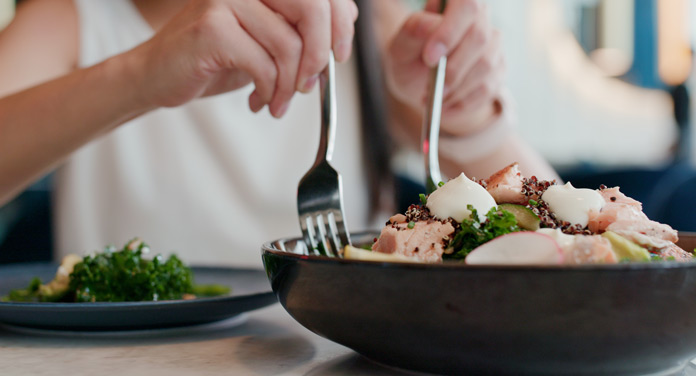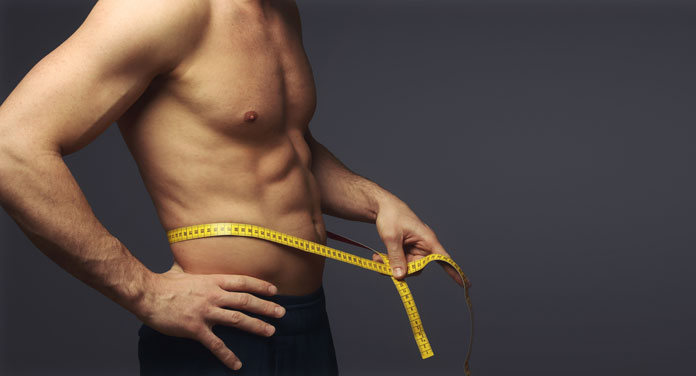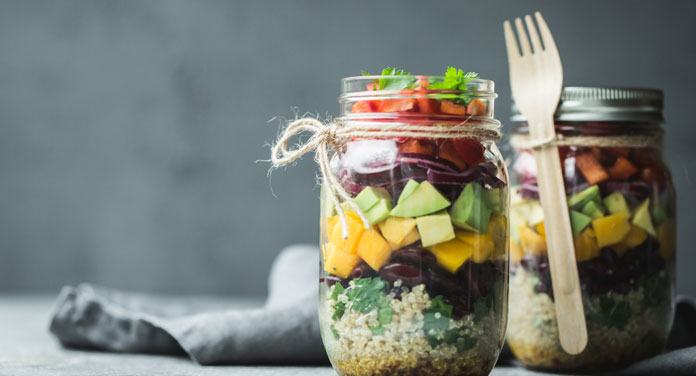Find out what is Intuitive Eating? Only eat when and what you are hungry for and still keep your ideal weight? Sounds too good to be true? Actually not – rather it is an old nutrition model that is currently being revived and is becoming the new (old) nutrition trend (with future and success potential). This form of nutrition is called intuitive eating and is as old as man himself.
What Is Intuitive Eating?
The idea behind intuitive eating is to go back to the most natural way of eating: eating when you are really hungry, eating what your body needs at that moment, and only enough to satisfy your hunger. Actually, our body is a true miracle that signals us exactly when it needs food in order to be fully productive.
Unfortunately, many people have forgotten over time how to listen to their own body and its needs. Over the years, an oversupply of food and strong exposure to external influences have meant that body signals have lost their role as decision-makers in food selection.
These days, you can find tons of advice in trade journals, on social media channels, or on blogs about what the right form of nutrition is to achieve and then keep the dream body. Starting with intermittent fasting, calorie counting, to the large-scale renunciation of individual macronutrients such as carbohydrates.
And let’s be honest, most of us have certainly tried at least one of the trends mentioned to lose a few annoying pounds.
These dietary rules can certainly help to normalize a misguided eating relationship again, but they are usually difficult to maintain in the long term. Because very few want to do without carbohydrates for the rest of their lives or are not allowed to eat anything before 2 p.m.
Intuitive eating requires none of this. Rather, it relies on us relearning to listen to our body’s signals. After a hearty evening meal, you might not feel hungry again the next morning, but you would still eat the muesli out of habit. After all, you should eat like a king in the morning – shouldn’t you? Intuitive eating relies on the body knowing best what is good for it, when, and in what quantities. And absolutely everybody knows that – many have simply forgotten how to listen to it.
Only Eat What You Feel Like Eating: Does That Mean Cola, Burgers & Pizza In Bulk?
The thought seems obvious, but no. In fact, the body doesn’t constantly crave greasy, unhealthy foods. It is mostly the renunciation that makes these dishes attractive and desirable. If you keep forbidding yourself an ice cream, which you crave so much, you often want it all the more – you get to the point where your head turns off and you indulge in unhealthy amounts of what you have forbidden yourself for far too long.
Everything should (as is so often the case) take place in the right balance. And the nice thing is: the better you learn to listen to your own body needs again, the more you will experience that your body mainly demands nutritious and natural foods. There will always be (and maybe) a desire for chocolate in between, but then your body will want an apple just as badly. The body craves the nutrients it is lacking, and with a little discipline and practice, you too will be able to learn to listen to your body’s signals again.
What Can I Achieve With Intuitive Nutrition?
First of all: intuitive eating is a way of eating, not a diet to lose a lot of weight quickly. By the way, we should all keep our hands off these diets.
Weight loss is not necessarily the primary goal of intuitive eating, but rather breaking compulsive eating habits. Food should not be the absolute focus of our everyday life, but a natural and delicious companion to cover our energy needs. If the obsessive focus on the topic of food is released, there is often a noticeable relaxation and, as a result, increased satisfaction. With this mental balance, emotional eating in the form of cravings can be a thing of the past.
Although weight loss is not the ultimate goal of intuitive eating, many people have already achieved great success in losing weight through intuitive eating. Losing weight always requires a calorie deficit. This is not necessarily the case with intuitive nutrition, since it is more about maintaining (i.e. absorbing the calories actually required).
However, weight loss can occur if you keep an eye on the calories when eating. So your body can ask for porridge for breakfast and yet you can consciously decide to keep the tablespoon of nut butter a little smaller. Looking at a slightly reduced calorie intake in combination with intuitive nutrition is definitely recommended for a temporary period, but you should be very careful not to fall back into a set of rules and the calorie counting mechanism.
Intuitive Eating Still Sounds Too Complicated For You?
We can understand that. We are exposed to such a deluge of information about nutrition, health, and fitness these days that it’s only understandable if you’re just confused by all these topics. There are many good sources, studies, and books on the subject of intuitive nutrition. Many coaches offer their support to help you get back to intuitive eating.
If you prefer to try intuitive eating on your own first, we have put together the most important basics for intuitive eating to help you:
1. You Eat When You're Hungry
Don’t confuse cravings with physical hunger – this is not so easy, especially in the initial phase of intuitive eating. Don’t eat because it’s a specific time, but because your body is sending you the “hunger” signal. The hunger signal can also go beyond the familiar growling stomach: tiredness or a feeling of dizziness can also be signs of hunger.
2. Food Is Not Your Enemy; Eating Is Pleasure
There is neither good nor bad food. The decisive factor is whether you have supplied the body with what it needs. This can be found out very easily by asking yourself the following questions during or after the meal: How did you like the food? Are you satisfied and satisfied? How is your body feeling after eating? If the answers to these questions are positive, take this as confirmation that your intuitive food choices have been successful.
3. Forget The Food Conscience
Actively deny that you have a guilty conscience after eating. Unfortunately, we are all too often shaped like this: after the salad with chicken, our conscience is good, after pasta with pesto, our conscience is bad. But pasta is not bad per se and salad is not always good. The body can live just as little balanced on salad alone as on pasta in bulk. Enjoy your food, enjoy it and accept what food your body has asked for.
4. Notice Signals Of Satiety
Listen to your body while eating. He gives you the signal when he is full. Make sure you eat slowly enough so that the satiety signals can set in. If you gulp down your food too quickly, your body won’t be able to keep up with the signal. So enjoy every bite. Perceive the food in all its components and enjoy the taste. And very important: if your body sends the signal that it is full, then stop eating. Even if the plate isn’t empty yet.
5. Don't Use Food As A Reward Or Punishment
Food should be neither one nor the other. Food is an integral, important part of our lives. And this should always be a pleasure – regardless of the intensity of the last sports unit or the type of breakfast in the morning. Don’t punish yourself for something by not eating or eating what you think is healthy. Conversely, do not reward yourself with a scoop of ice cream after the jog, just for the sake of the reward.
Eating should not be a mechanism for coping with emotions or problems. Actively seek and find other strategies to deal with your worries. This can be, for example, a phone call with your best friend, a warm bath, or a round of meditation or yoga.
6. Start The Day With A Glass Of Water
It sounds so banal and yet it is incredibly important. The first action after getting up: drink a large sip of fresh clear water. This wakes you up, stimulates your body and all its functions, and sets the course for the day. In general, you should make sure to drink enough water throughout the day. The rule of thumb here is at least 1.5 liters. A thirst signal is often confused with hunger. Prevent this by always supplying your body with sufficient liquid.
7. Integrate Movement Into Your Everyday Life
Find a sport that you enjoy. It’s not about what burns the most calories, it’s about what form of exercise makes you feel good. After a very hard day at work, a round of yoga can work wonders. On a sunny Saturday morning, it might be the long jog. Incorporate movement into your everyday life to feel good and keep your body and its function active.
8. Accept Yourself And Love You
This is perhaps the most difficult and at the same time the most important basis. We are all unique, lovable, and beautiful. Accept yourself as you are. Learn to love the birthmark on your belly button instead of hating it.
You have slight stretch marks – let me tell you: we almost all have them. We are all good the way we are. We don’t all have to look the same and wear the same dress size. Anyway, who says everyone wants to look like this?
Learn to love yourself and focus on all the things that you find beautiful about yourself. Maybe it’s your hair, your hands, your eyes, your smile, or your lips. No matter what it is – focus on it and tell yourself at least once a day: I’m great the way I am.





